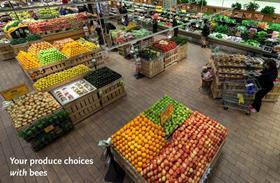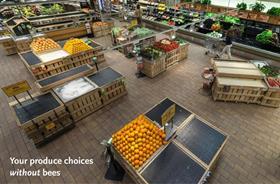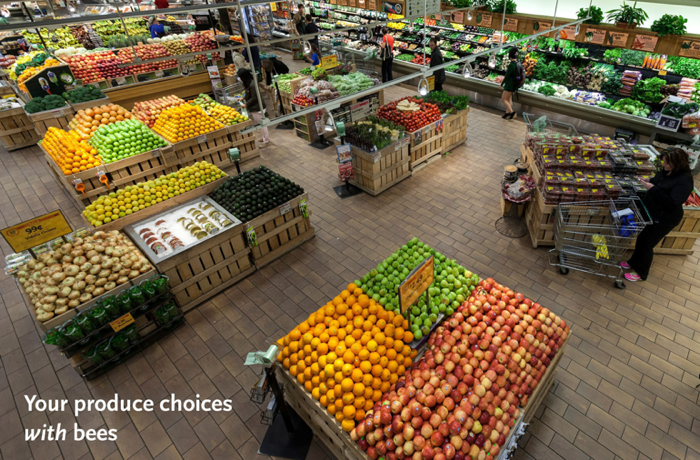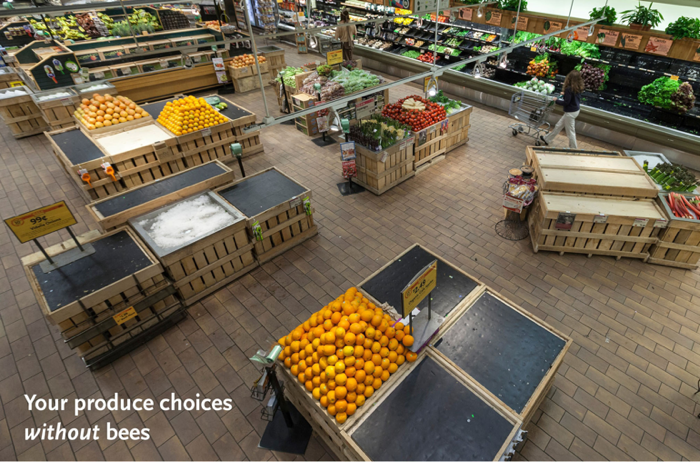

Bees continue to create a buzz in the fresh produce trade media and, since the much-publicised dawn of the Beepocalypse and more recently the EU's attempt to save bees by banning neonicotinoids, they appear to have emerged as natural icons of the global sustainability movement.
That reputation will have been further enhanced this week with US grocer Whole Foods' decision to publish an intriguing pair of photos as part of its Share the Buzz campaign, a joint effort with the Xerces Society that seeks to boost awareness of honeybees' role in the global food system.
The images show a fresh produce department before and after the removal of vast swathes of fruit and vegetables that rely on bees and other pollinators for their existence – the implication being that, without bees, there are going to be rather a lot of empty shelves in stores.
Staff at the store featured – Whole Foods University Heights in the US city of Providence, Rhode Island – removed a total of 237 products (almost half) from display including apples, avocados, mangoes, lemons, limes, melons, aubergines, broccoli, carrots, cauliflower, courgettes, cucumbers, leeks and a range of other vegetables.
Whole Foods commented: 'One of every three bites of food comes from plants pollinated by honeybees and other pollinators. Yet, major declines in bee populations threaten the availability of many fresh ingredients consumers rely on for their dinner tables.'
To help support honeybee populations, for every pound of organic summer squash sold at Whole Foods Market stores from 12-25 June, the company will donate US$0.10 to pollinator preservation.





